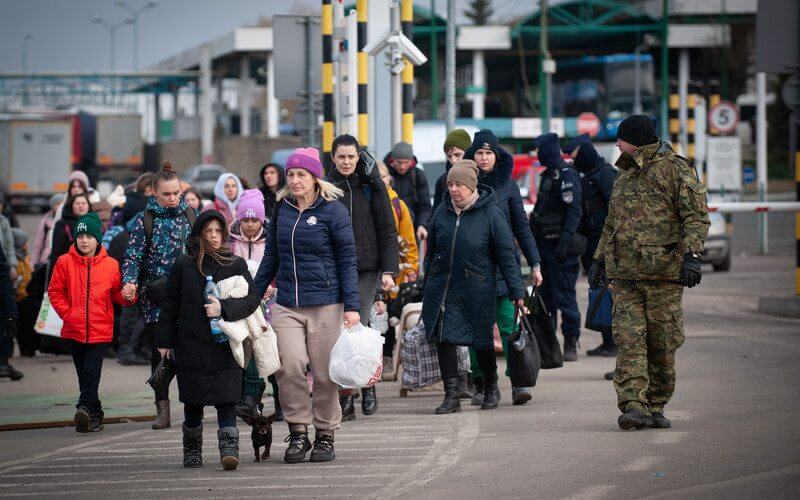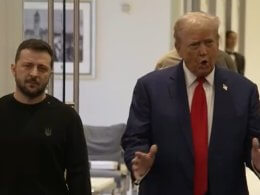The EU is pressing to get Ukrainian refugees to leave Poland and go to other member states.
The demand comes as some 3.8 million have fled Ukraine, with Poland currently hosting more than any EU state.
The UN refugee agency (UNHCR) says Poland has taken in over 2 million refugees. Of those more than 1.5 million remain in Poland, said EU home affairs commissioner Ylva Johansson.
"It is important to incentivise Ukrainians to leave Poland to go to other members," she told reporters on Monday (28 March) ahead of a meeting of interior ministers, noting that some 1 million have fanned out to other EU states.
It is not immediately clear how the EU plans on getting them to leave Poland. But a proposal by Germany and Poland seeks to give each Ukrainian refugee a flat fee of €1,000 for the first six months.
Johansson remained vague on whether the commission would support such an idea, noting instead that they are looking at how to inform those in Poland that they will receive the same rights elsewhere.
She also said the commission is looking at how to make EU funds immediately available to member states bordering Ukraine, plus possibly additional funds later on.
Out of the 3.8 million refugees from Ukraine that have fled, only around 800,000 have so far applied for temporary protection in the EU, she said.
The protection is an EU scheme that gives Ukrainian refugees residency and working rights up until next March.
France and Greece have each registered 15,000, said their interior ministers on Monday. That's more than double those registered in Hungary.
According to the UNHCR, some 350,000 Ukrainians went to Hungary. But of those, just under 6,000 registered in Hungary as of 23 March.
Austria by comparison has registered some 35,000 and Ireland around 13,500.
The EU wants to get a better idea on where people are settling in order to determine needs.
This includes centralising at the EU level, national registration schemes.
It also wants to know who is coming in and using an EU police database known as the Schengen Information System to catch possible trouble makers. Johansson said it had triggered a few hits.
Similar comments were made by French interior minister Gerald Darmanin, who was speaking on behalf of the French EU presidency.
But Darmanin said the risk of terrorists or Russian plotters coming from Ukraine was low given that the vast majority of those entering are women, children and the elderly.
"We have to check that they are not known by the police for terrorism. There may be attempts. We haven't seen any," said Darmanin.









